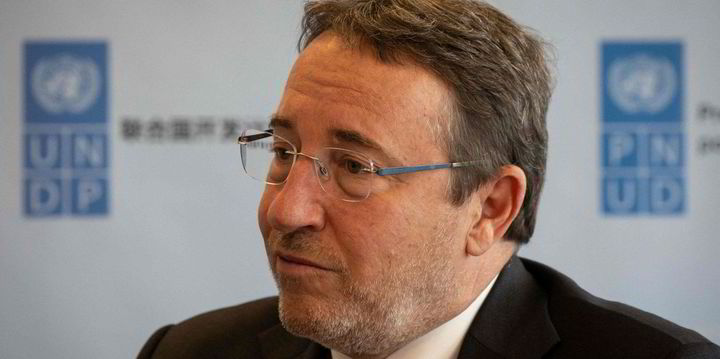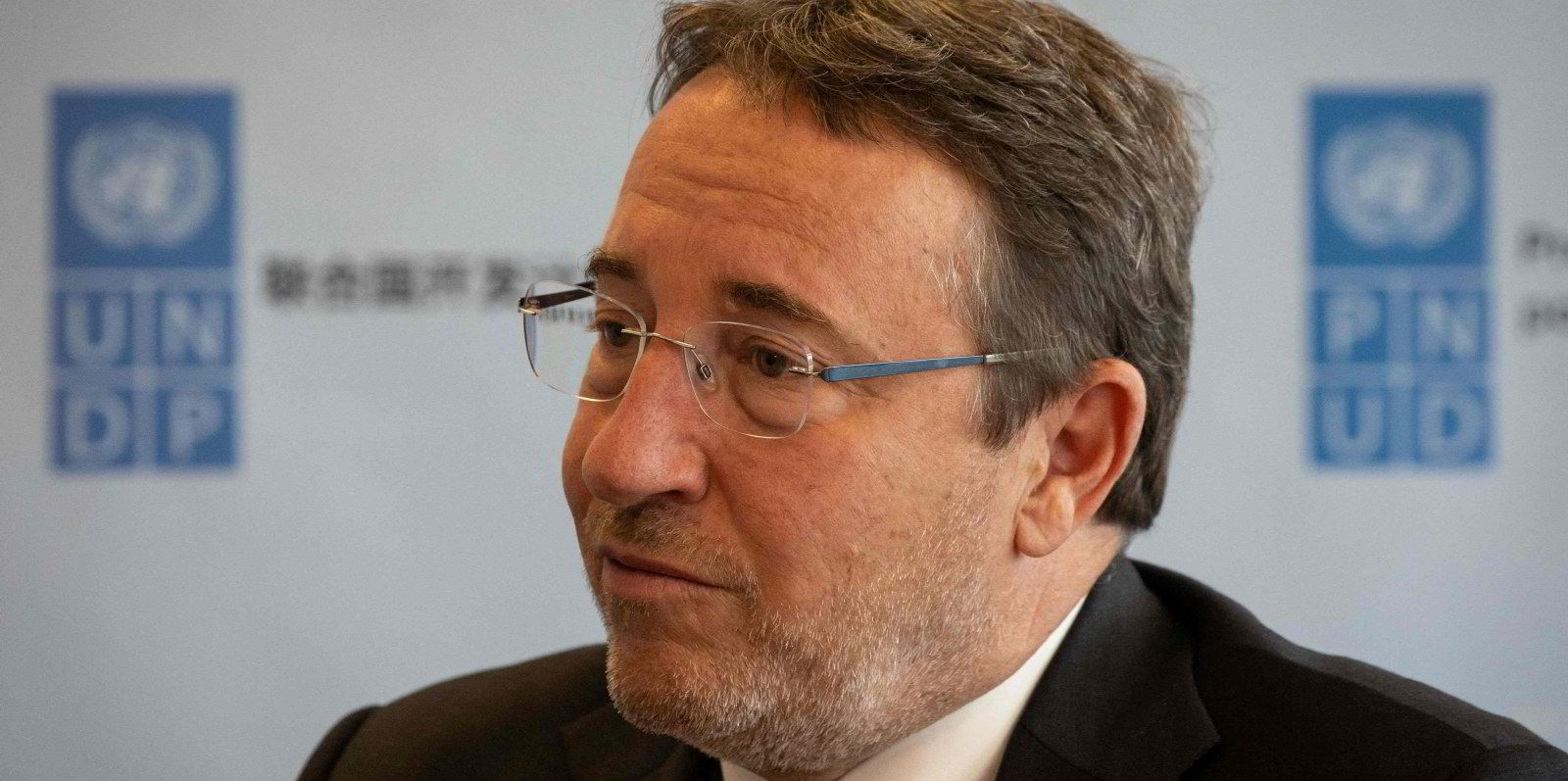A United Nations agency has signed a deal with an international shipping player as it aims to transfer almost 1.1 million barrels of oil from a decaying floating storage and offloading (FSO) vessel offshore Yemen’s Red Sea coast.
In its bid to avert a potentially catastrophic oil spill, the United Nations Development Programme (UNDP) said on Thursday that it has inked an agreement with Euronav “to secure the purchase of a Very Large Crude Carrier (VLCC)”, as part of the UN-coordinated operation.
The VLCC in question was not named, but the UNDP stated that it is currently in dry dock for modifications and expected to arrive in early May for the operation to transfer the oil from the stranded vessel, called FSO Safer.
The former tanker, is more than four decades old and has been moored at sea about nine kilometres offshore Yemen, stranded by the prolonged civil war there.
UNDP said the vessel has not been maintained since 2015 because of the conflict in Yemen”, and has decayed to the point where there is an imminent risk it could explode or break apart, which would have disastrous effects on the region.
“A major spill would devastate fishing communities on Yemen’s Red Sea coast, likely wiping out 200,000 livelihoods instantly. Whole communities would be exposed to life-threatening toxins,” it stated.
Article continues below the advert
Euronav confirms
Euronav, the Belgian shipping company, confirmed it will sell a VLCC to the UN, and that the new vessel would replace the FSO Safer and stay there.
Euronav would help operate the vessel including after the transfer of the oil for several months.
Hugo De Stoop, chief executive of Euronav said: “We are very proud to work with the UN in this delicate and sensitive operation in providing an appropriate vessel but also necessary expertise from our operational staff to support the salvage procedure.
“This critical operation requires dedicated support from Euronav for at least nine months and reflects our wider sustainability and environmental credentials. The Ocean is our environment, let’s protect it”.
High-risk operation
UNDP is implementing the “high-risk operation,” as part of the UN-coordinated initiative, and is contracting marine salvage company SMIT to safely remove the oil and prepare the Safer for towing to a green salvage yard, it added.
UNDP Administrator Achim Steiner stated that the purchase of a suitable vessel by UNDP “marks the beginning of the operational phase of the UN-coordinated plan to safely remove the oil from the Safer and avoid the risk of an environmental and humanitarian disaster on a massive scale”.
“We must accept that this is a very challenging and complex operation,” he said.
The UN has raised $95 million for the salvage operation, of which $75 million has already been received.
The total budget for the emergency phase of the project is $129 million, it said.
The US government last year said that it aims to provide $10 million towards the UN operation to prevent an environmental disaster from the FSO Safer.
Potential threat
UNDP has warned that a potential spill from the FSO could “also result in the closure of the ports of Hodeidah and Saleef – which are essential to bringing food, fuel and life-saving supplies into Yemen, where 17 million people need food assistance”.
“Desalination plants would close, cutting off a water source for millions of people,” it said.
Oil from the Safer could reach the African coast and affect any country on the Red Sea, UNDP added.
“The cost of cleanup alone is estimated at $20 billion. Disruptions to shipping through the Bab al-Mandab strait to the Suez Canal could cost billions more in global trade losses every day, as happened after the Ever Given grounded in the Canal in 2021,” it claimed.

